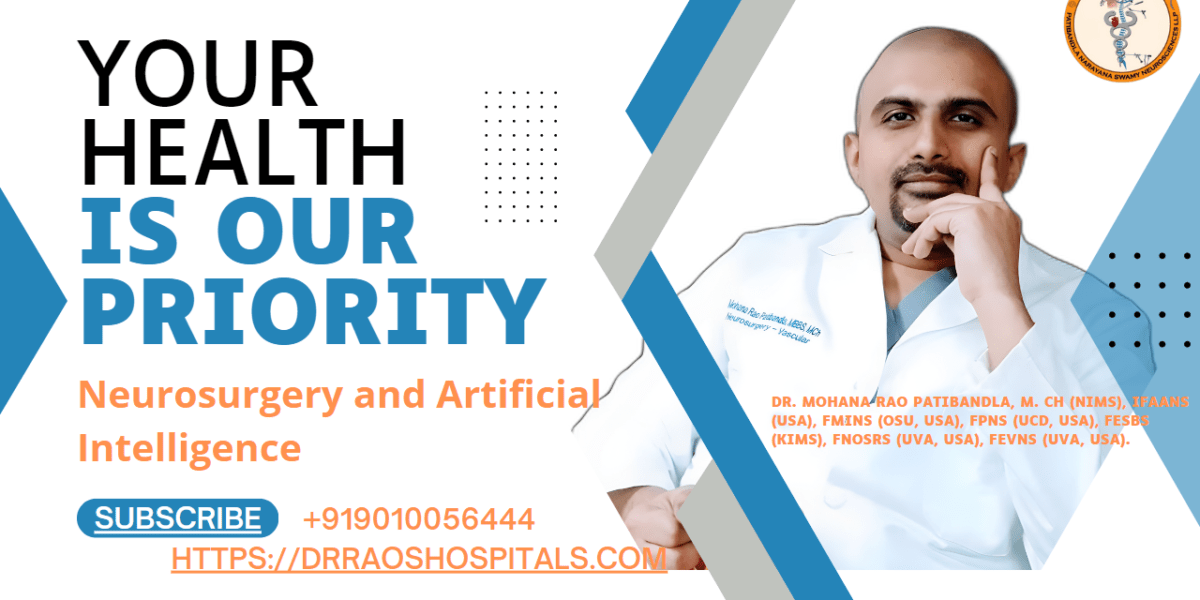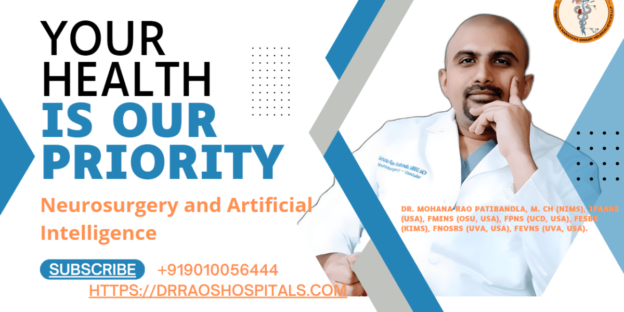Neurosurgery and Artificial Intelligence at Dr. Rao’s Hospital
Neurosurgery and Artificial Intelligence: The Promise of Precision Medicine
Introduction
Artificial intelligence (AI) is rapidly transforming medicine, and neurosurgery is no exception. AI is being used to improve the accuracy of diagnosis, develop new treatment options, and personalize care for each patient.
At Dr. Rao’s Hospital in Guntur, India, Dr. Rao, a leading neurosurgeon, uses AI to provide his patients with the best possible care. Dr. Rao believes that AI has the potential to revolutionize neurosurgery, and he is committed to using this technology to improve the lives of his patients.
One way that AI is being used in neurosurgery is to improve the accuracy of diagnosis. AI-powered image analysis tools can help neurosurgeons to identify and characterize tumors and other abnormalities in the brain and spine. This can lead to earlier diagnosis and more effective treatment.
AI is also being used to develop new treatment options for neurosurgical conditions. For example, AI-powered surgical robots can help neurosurgeons perform delicate procedures more precisely. This can reduce the risk of complications and improve patient outcomes.
Finally, AI is being used to personalize care for each patient. AI-powered algorithms can analyze a patient’s medical history, genetic profile, and other factors to identify the best treatment options. This can lead to more effective and personalized care.
Dr. Rao is excited about the potential of AI to transform neurosurgery. He believes that AI can help improve diagnosis accuracy, develop new treatment options, and personalize care for each patient. Dr. Rao is committed to using AI to provide his patients the best possible care.
What is precision medicine?
Precision medicine is an emerging model for the next generation of clinical care that will capitalize on the dynamic interaction between individual biology, lifestyle, behavior, and environment. Precision medicine uses data-driven approaches to identify and target individual patients with the most effective treatments.
How can AI help with precision medicine in neurosurgery?
AI can help with precision medicine in neurosurgery in several ways. For example, AI can be used to:
- Identify patients who are most likely to benefit from a particular treatment.
- Personalize treatment plans for each patient.
- Monitor patient progress and adjust treatment plans as needed.
- Predict the risk of complications.
What are the benefits of using AI in neurosurgery?
There are several benefits to using AI in neurosurgery, including:
- Improved accuracy of diagnosis.
- Development of new treatment options.
- Personalized care for each patient.
- Reduced risk of complications.
- Improved patient outcomes.
What are the challenges of using AI in neurosurgery?
There are several challenges to using AI in neurosurgery, including:
- The need for large amounts of data.
- The need for accurate and reliable data.
- The need to develop AI algorithms that are specific to neurosurgery.
- The need to ensure that AI-powered tools are safe and effective.
Conclusion
AI is a promising technology that has the potential to revolutionize neurosurgery. Dr. Rao is committed to using AI to provide his patients the best possible care. He believes that AI can help improve diagnosis accuracy, develop new treatment options, and personalize care for each patient.
If you want to learn more about how AI is used in neurosurgery, please visit Dr. Rao’s website or contact his office.


